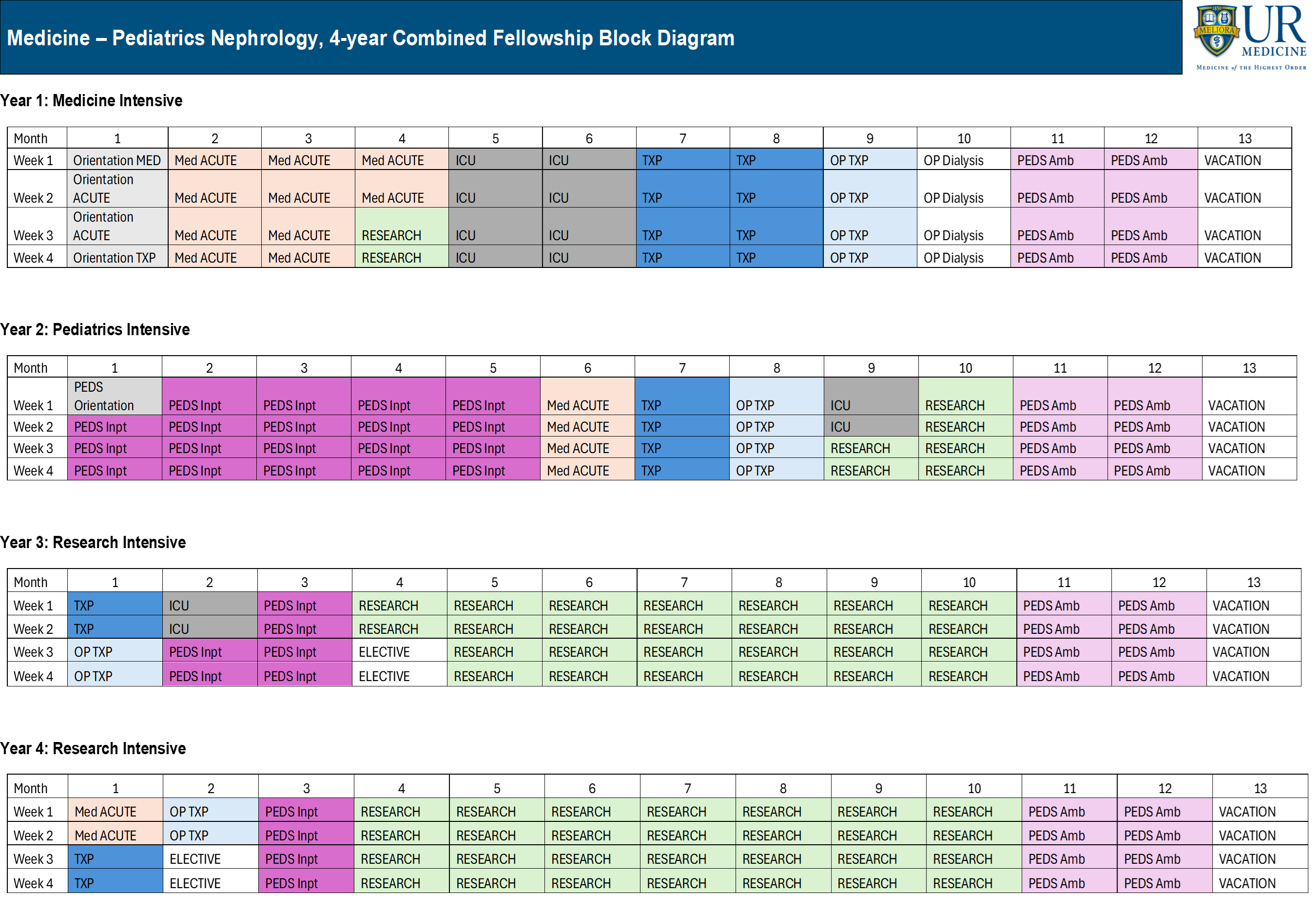Educational Activities
Educational Activities
We offer a comprehensive range of educational experiences to our fellows and residents. Our two-year curriculum is designed to complement the clinical exposure of our active consultative services.
“Hands On” Learning Opportunities
- Native Kidney Biopsy
- Transplant Kidney Biopsy
- Temporary Hemodialysis catheter Placement
- Point-of Care Ultrasound: with focus on Volume Status and hemodialysis access assessment as well as Kidney and bladder imaging
Simulation
- We have developed a simulation program with standardized patients to facilitate skills regarding dialysis initiation.
- Our fellows participate in a simulation training to practice temporary hemodialysis catheter insertion.
Clinician Educator Track
The Clinician Educator Track helps fellow participants to build a foundation in educational theory and practice and to foster their career development in medical education. Our second-year trainees have the opportunity to participate in this one-year track along with other fellows within the Department of Medicine.
Medicine-Pediatric Nephrology Combined Fellowship
We offer a combined 4-year fellowship in Adult and Pediatric Nephrology. This 4-year curriculum is highly integrated with dedicated research time allocated to the 3rd and 4th years. The curriculum overview is outlined below:
